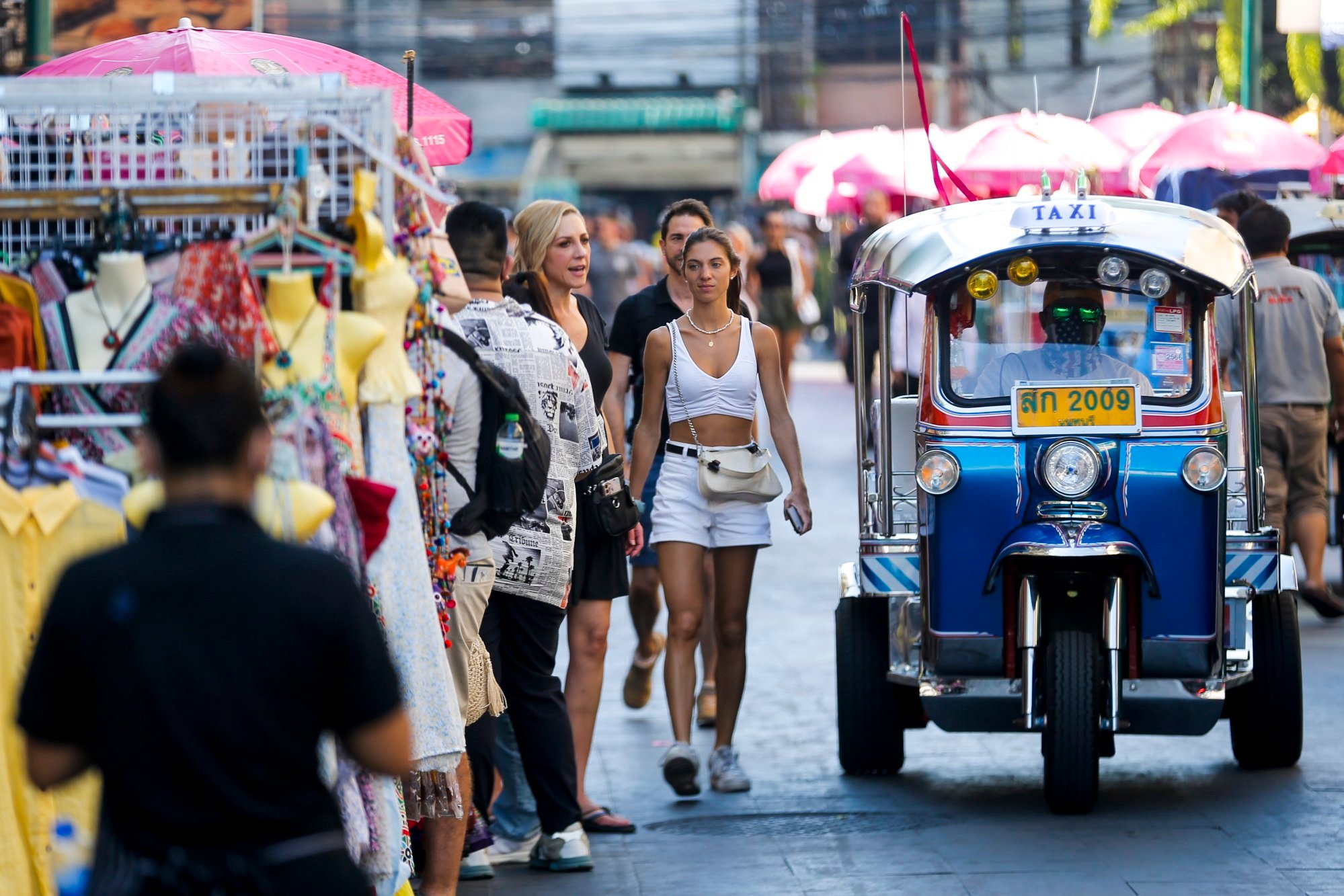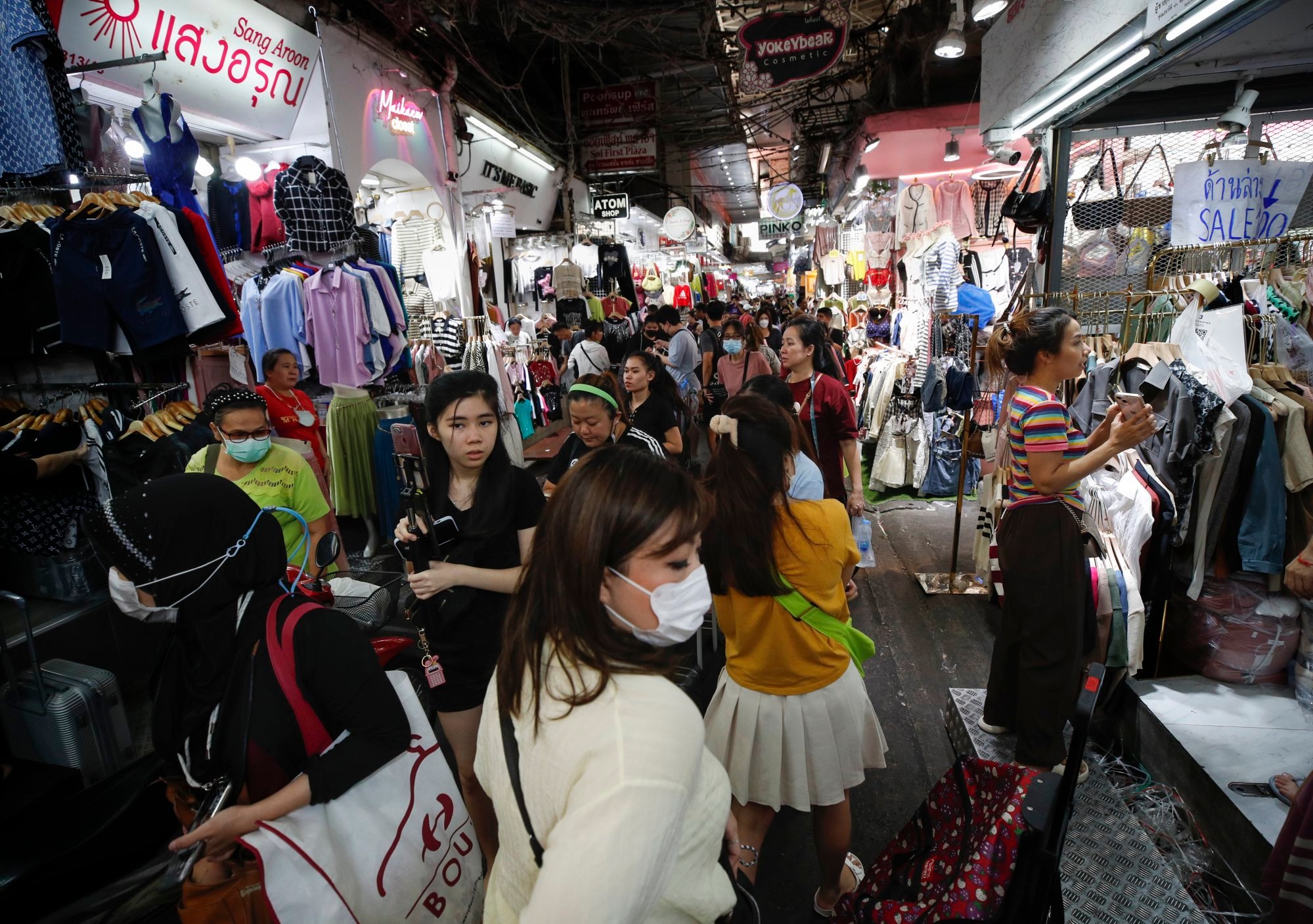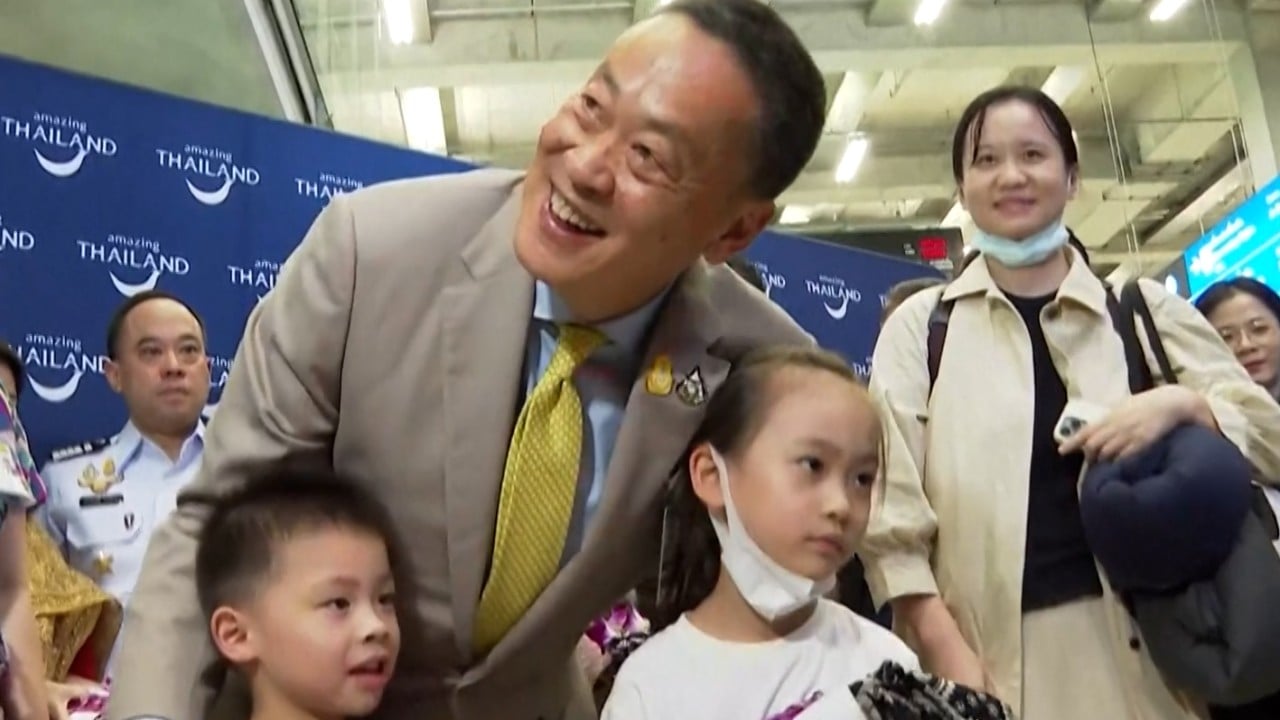Thailand extends nightlife opening hours as tourists return: ‘everything is open, it’s cool’
[ad_1]
“Everything is open, it’s cool,” he says, as his friends livestream the giddy whirl of drunken tourists, touts, cannabis stalls, tuk-tuk drivers and night workers on a downtown part of Sukhumvit Road – one of the city’s main tourist drags.
For years the kingdom’s nighttime economy in its most popular tourist areas has been officially governed by a closing time of 2am, with bars, clubs and restaurants selling alcohol complaining of arbitrary police enforcement, or having to pay to remain open for longer.

Packed DJ nights were routinely closed down mid-set, while harried customers seeking an after hours drink had to sink beers in hushed darkness behind closed bars, or at street pop-ups, which folded away at remarkable speed at the first flash of lights from a police patrol.
The pandemic brought a merry-go-round of curfews, booze bans and movement restrictions, further crushing the nightlife industry and taking with it the income of the hundreds of thousands of Thais who depend on it in some way.
The new government of Srettha Thavisin wants all that to change by helping tourists to spend more, and later.
It has extended opening hours to 4am in zoned areas with the highest tourist footfall. Those are in parts of Bangkok, Pattaya and Phuket, the three most visited parts of Thailand, as well as Chiang Mai and Koh Samui.
Hong Kong, whose own once storied nighttime economy is yet to fully recover from the punishing years of the pandemic, is renewing its own “Night Vibes” campaign as the Lunar New Year approaches. The city is offering street performances, discounts on evening screenings and later openings at museums, as it seeks to entice more tourists to the city and get residents to spend after dark to support local businesses.

Back on the map
Thailand’s move is part of a wider appeal to the world’s tourists as the kingdom seeks a return to pre-Covid visitor numbers, which in 2019 hit a record 40 million.
If it nears those numbers, the World Bank says Thailand’s growth could hit 3.2 per cent in 2024 – up from a forecast 2.5 per cent in 2023 – good news for an economy which has wheezed rather than roared back to life after the pandemic.
HBO Emmy-winning show White Lotus will start filming a third series in Bangkok, Koh Samui and Phuket, a “soft power” win for Thailand as it aims to haul itself back into the global limelight.
Why Southeast Asian nations make ‘concerted effort’ to court Indian tourists
Why Southeast Asian nations make ‘concerted effort’ to court Indian tourists
“The prime minister is confident that Thailand is back on the map,” government spokesman Chai Watcharong said on Thursday, adding officials were focused on cementing Thailand’s reputation as “one of the world’s top destinations”.
So far, the signs are that it may be working, partly due to the relaxed entertainment laws.
“The nightlife in Pattaya is 80 per cent dominated by foreign tourists but many of them don’t like to go out until late, even after midnight,” said Damrongkiat Pinitkan, secretary of the Pattaya Business and Tourism Association and director of club Hollywood Pattaya. “It’s been buzzing since we were able to open till 4am.”
The resort city two hours east of Bangkok also pulls in 300,000 economic migrants, he said, adding everyone from food cart vendors to taxis and waiting staff “are able to send extra income home as a result of this late night business”.
Takings are up 20-30 per cent since the extended opening hours were rolled out in the run in to Christmas as peak holiday season began, businesses say, with service staff saying they can come home with an extra US$15-30 a night in tips and pay.
Fully booked
The Lunar New Year holiday on February 10 will be an early marker of whether Thailand is likely to get within a few million of pre-pandemic numbers.
But it depends on how wealthy China’s middle classes are feeling to resume overseas travel after concussive rounds of bad economic news.
Can Malaysia attract ‘picky’ tourists as TikTok changes Chinese travel habits?
Can Malaysia attract ‘picky’ tourists as TikTok changes Chinese travel habits?
The signs are mixed so far for 2024. Data from Airbnb shows Thailand was the most searched destination among outbound Chinese travellers looking to book between last December and February this year. Yet a crisis in China’s property market and high youth unemployment are dragging on the world’s second-largest economy, and that may play out into their travel plans.
Thailand’s night economy is managing its expectations.
At the Hollywood Club, the Thai house band has Chinese pop songs on their playlist, but has also locked down music for other key demographics – Koreans and Japanese – in case China’s outward tourism does not vault back.
“Some businesses have made more money than pre-Covid times as they have adapted … but they’re no longer waiting for Chinese tourists to come back,” Damrongkiat said. “They are targeting the new wave of tourists who have higher spending power.”

In Bangkok, later opening hours and more visitors is spreading a feel-good-factor across the city’s tourist-facing areas, where foot massage shops and nail salons are bunching up in unprecedented numbers to cater for the surging demand from holidaymakers.
Even for night businesses in residential areas firmly outside the 4am zones, the outlook is good after years of clinging on.
“The business is fully back! We’re fully booked and busy every night,” says Chinnatan Klamjeenpanuwong, co-owner of Ba Hao, a popular restaurant and bar in a row of restored shophouses in Bangkok’s Chinatown.
“The majority of our customers are also new faces. Through social media like TikTok and word of mouth, we’ve been blessed with decent business.”
[ad_2]
Source link


